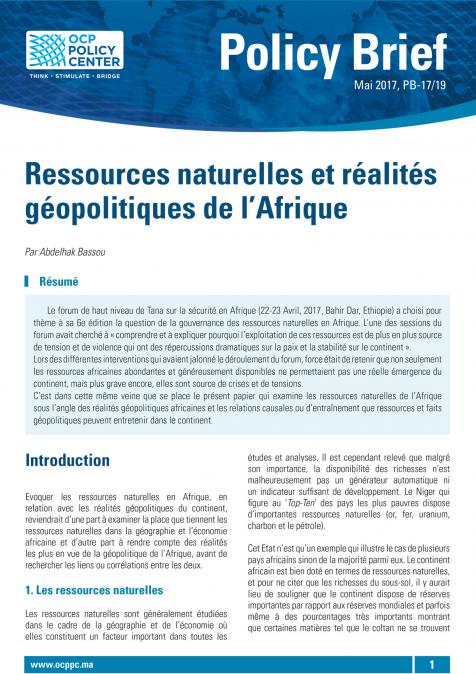Publications /
Policy Brief
Policy Brief
La verticale Afrique - Méditerranée - Europe dans le Triangle Stratégique Afrique - Europe -Amérique Latine
May 28, 2018
Pour reprendre l’initiative et se doter d’un nouveau souffle, l’Europe s’ouvrir sur ses proximités : proximité géographique avec la Méditerranée et l’Afrique, et la proximité culturelle avec l’Amérique Latine. C’est ainsi que peut s’élaborer un nouveau triangle stratégique, au sein duquel le Maroc, grâce à son statut avancé dans l’espace euro-méditerranéen et à son ouverture sur l’espace sub-saharien, a un rôle tout particulier à jouer. C’est ce que nous explique notre senior fellow Fethallah Oualalou dans cette note, qui reprend son intervention lors de la 7ème rencontre sur le triangle stratégique Amérique latine/Caraïbes-Europe-Afrique organisée par l’IPDAL à Lisbonne.








